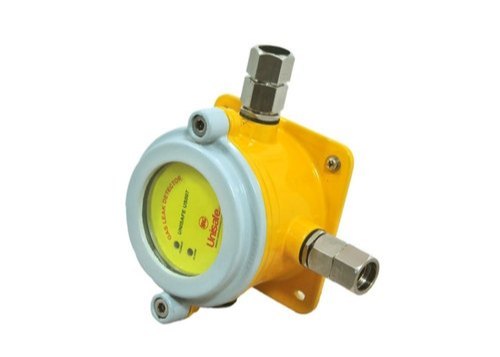Start a LPG Gas Leakage Detector Supplying Business
What Is a Gas Detector?
· A gas detector is a device that can identify the presence of a wide array of gases within a given area. Their most common uses are to detect gases which may be harmful for humans to breathe, and to detect gases which are flammable or otherwise dangerous. They can be used across several different industries and are commonly seen in everyday use.
Methods of Gas Detection
· The method of gas detection depends upon the model of gas detector being used. Most detectors use either catalytic sensors or infared sensors.
· Regular gas detectors need to be placed as near to the source of gas as possible to achieve an accurate reading. For these devices to work, it is required that the gas pass by the sensors for gas detection to occur. Ultrasonic gas detectors rely on specially tuned microphones which can detect the hiss of a gas leak. Most gas detectors are specially made or calibrated to detect only one specific type of gas. Modern gas detectors often have sensors to detect the presence of a particular gas and also use the aforementioned ultrasonic technology to detect gas leaks.
· The majority of gas detectors are powered by battery so it is essential that the user makes sure to test the batteries in the device before proceeding to the test site. Some gas detectors have a backup set of batteries that can be installed and many are also chargeable via a power supply which can be plugged into a wall outlet.
How Gas Detectors Work
· The infared sensors on a gas detector contain small catalysts that will cause an alarm to go off or disrupt the system being used to indicate the presence of gas. What the catalyst is tuned to look for is the type of fluid, or gaseous substance, associated with the gas the unit is designed to detect. Gas detectors also have microprocessors that convert the information detected by the device into a readable format that will display on the screen of the detector. Many advanced detectors are also equipped to alert the local fire department or other emergency services of a leak if plugged into a phone line via a program on the detector.
· Gas detectors can have their operation affected by environmental factors such as humidity. The presence of airborne chemicals other than gas could also cause a gas detector to malfunction. These include solvents, aerosols, vapor from sulphur and silicone, lead, hydrogen sulfide and more.
· A way to verify that a gas sensor is working is to place a small amount of gas near the detector. Be careful not to let the gas come into contact with the sensor as it may damage it.
· 
· LPG / Natural Gas Leak Detector
| · | |
| · | · |
| · | · ·  · · · Item Code: RCG411· Gas Alarm (rcg411)· In most houses, the kitchen is where the fire starts. Knowing the cause of the fire is essential to fighting it the right way. This is where Ceasefire Home Safety’s Gas Leak Detector comes in.· Features:· Detects all sorts of combustible gases, lpg and lng, including city gaso Self test functiono Less affected by other organic solventso Loud sound signal of 85 db at alarm modeo Easy installation and maintenanceo Modernized designo Ideal for all kitchenso Excellent reliability & high stabilityo Durable sensor heado High accuracyo Three-year limited warranty.o Suitable for safety valve· Specifications:Power source: 90-240 v ac or 110 v/220 v aco Sensitivity: 10% lelo Test button for easily self testo Power consumption: ≤1. 7 wo Operating temperature: -10 ~ 50 co Ambient humidity: less than 95 % rho Horn level:85 decibels at 10 feeto Standby mode: green led ono Faulty indicator: yellow led ono Alarm mode: red led flashes and an acoustic alarmo Hot wire type sensorType Of Gases Sensed:o LPG: butane and propane used in normal and mini gas bottleso Gas from piping system (city gas) and natural gas (methane)· · · · Item Code: RCG411· Gas Alarm (rcg411)· In most houses, the kitchen is where the fire starts. Knowing the cause of the fire is essential to fighting it the right way. This is where Ceasefire Home Safety’s Gas Leak Detector comes in.· Features:· Detects all sorts of combustible gases, lpg and lng, including city gaso Self test functiono Less affected by other organic solventso Loud sound signal of 85 db at alarm modeo Easy installation and maintenanceo Modernized designo Ideal for all kitchenso Excellent reliability & high stabilityo Durable sensor heado High accuracyo Three-year limited warranty.o Suitable for safety valve· Specifications:Power source: 90-240 v ac or 110 v/220 v aco Sensitivity: 10% lelo Test button for easily self testo Power consumption: ≤1. 7 wo Operating temperature: -10 ~ 50 co Ambient humidity: less than 95 % rho Horn level:85 decibels at 10 feeto Standby mode: green led ono Faulty indicator: yellow led ono Alarm mode: red led flashes and an acoustic alarmo Hot wire type sensorType Of Gases Sensed:o LPG: butane and propane used in normal and mini gas bottleso Gas from piping system (city gas) and natural gas (methane)· |



